Shou-Yao Roy Tseng
Deploying Image Deblurring across Mobile Devices: A Perspective of Quality and Latency
Apr 27, 2020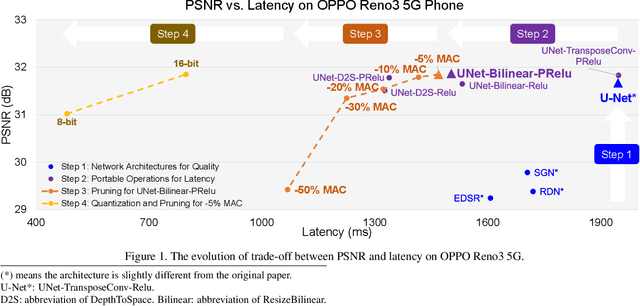

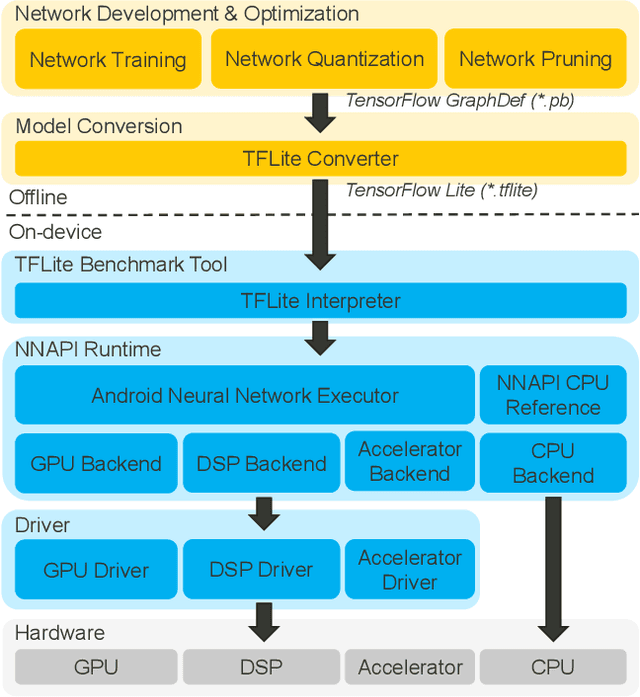

Abstract:Recently, image enhancement and restoration have become important applications on mobile devices, such as super-resolution and image deblurring. However, most state-of-the-art networks present extremely high computational complexity. This makes them difficult to be deployed on mobile devices with acceptable latency. Moreover, when deploying to different mobile devices, there is a large latency variation due to the difference and limitation of deep learning accelerators on mobile devices. In this paper, we conduct a search of portable network architectures for better quality-latency trade-off across mobile devices. We further present the effectiveness of widely used network optimizations for image deblurring task. This paper provides comprehensive experiments and comparisons to uncover the in-depth analysis for both latency and image quality. Through all the above works, we demonstrate the successful deployment of image deblurring application on mobile devices with the acceleration of deep learning accelerators. To the best of our knowledge, this is the first paper that addresses all the deployment issues of image deblurring task across mobile devices. This paper provides practical deployment-guidelines, and is adopted by the championship-winning team in NTIRE 2020 Image Deblurring Challenge on Smartphone Track.
Unified Dynamic Convolutional Network for Super-Resolution with Variational Degradations
Apr 15, 2020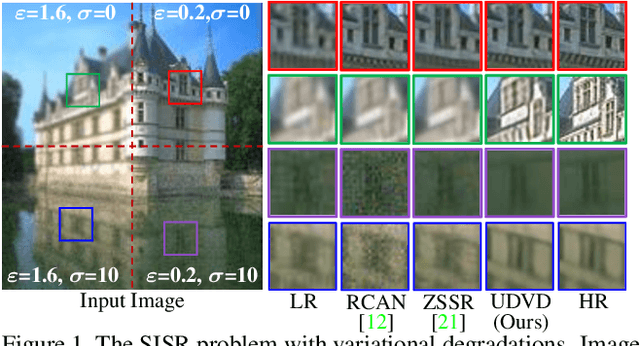
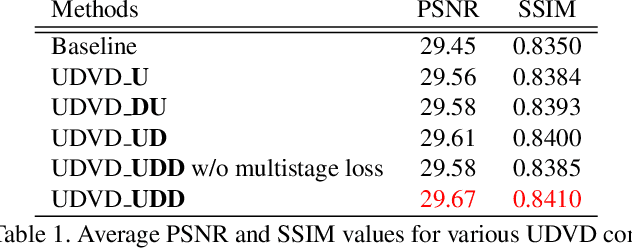
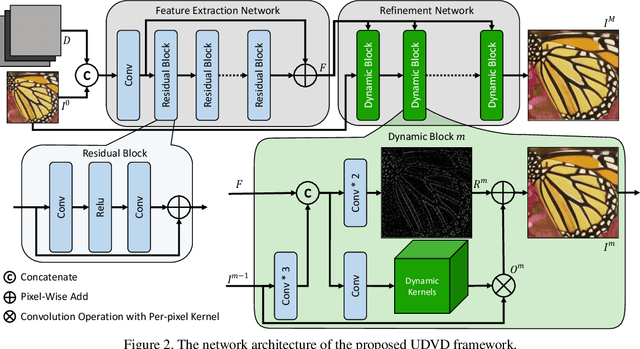
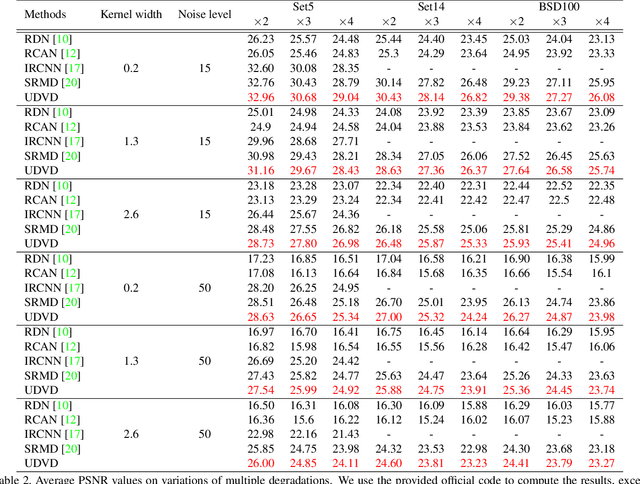
Abstract:Deep Convolutional Neural Networks (CNNs) have achieved remarkable results on Single Image Super-Resolution (SISR). Despite considering only a single degradation, recent studies also include multiple degrading effects to better reflect real-world cases. However, most of the works assume a fixed combination of degrading effects, or even train an individual network for different combinations. Instead, a more practical approach is to train a single network for wide-ranging and variational degradations. To fulfill this requirement, this paper proposes a unified network to accommodate the variations from inter-image (cross-image variations) and intra-image (spatial variations). Different from the existing works, we incorporate dynamic convolution which is a far more flexible alternative to handle different variations. In SISR with non-blind setting, our Unified Dynamic Convolutional Network for Variational Degradations (UDVD) is evaluated on both synthetic and real images with an extensive set of variations. The qualitative results demonstrate the effectiveness of UDVD over various existing works. Extensive experiments show that our UDVD achieves favorable or comparable performance on both synthetic and real images.
Non-local RoI for Cross-Object Perception
Nov 25, 2018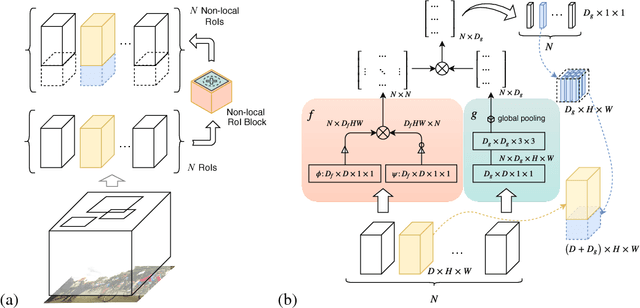

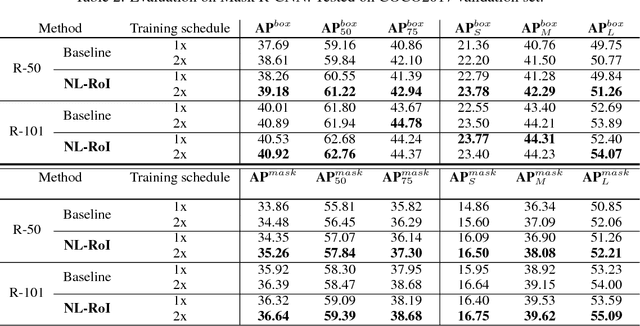
Abstract:We present a generic and flexible module that encodes region proposals by both their intrinsic features and the extrinsic correlations to the others. The proposed non-local region of interest (NL-RoI) can be seamlessly adapted into different generalized R-CNN architectures to better address various perception tasks. Observe that existing techniques from R-CNN treat RoIs independently and perform the prediction solely based on image features within each region proposal. However, the pairwise relationships between proposals could further provide useful information for detection and segmentation. NL-RoI is thus formulated to enrich each RoI representation with the information from all other RoIs, and yield a simple, low-cost, yet effective module for region-based convolutional networks. Our experimental results show that NL-RoI can improve the performance of Faster/Mask R-CNN for object detection and instance segmentation.
Non-local RoIs for Instance Segmentation
Jul 14, 2018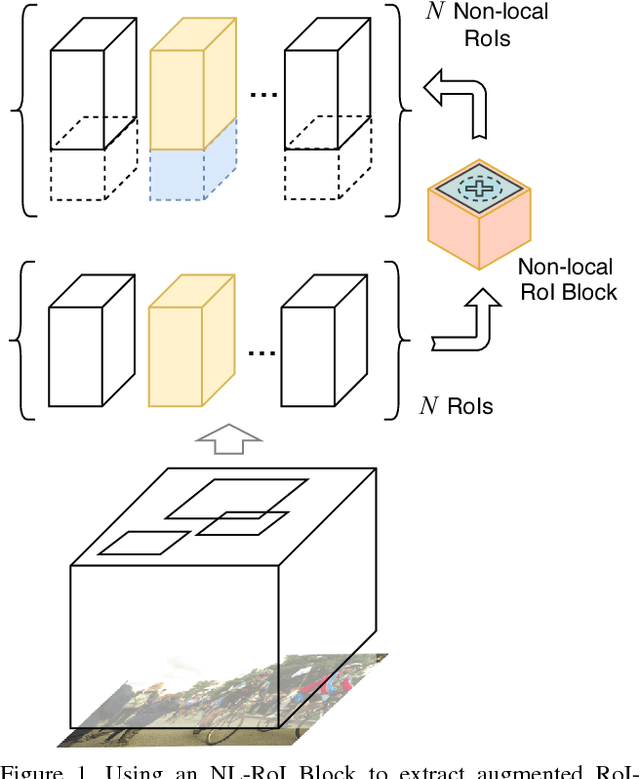

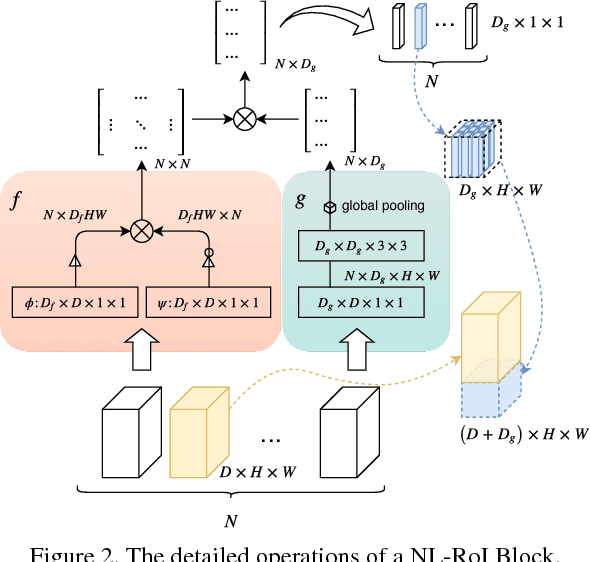
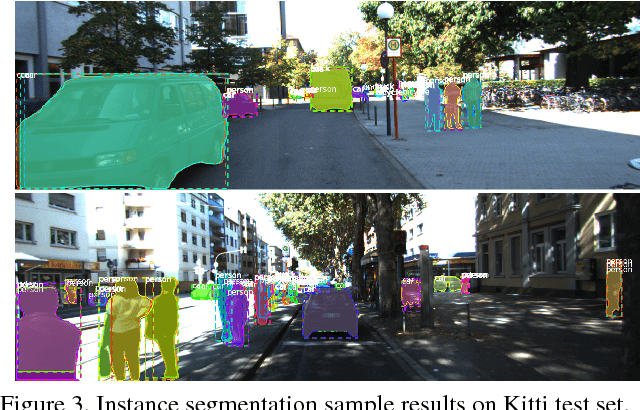
Abstract:We introduce the concept of Non-Local RoI (NL-RoI) Block as a generic and flexible module that can be seamlessly adapted into different Mask R-CNN heads for various tasks. Mask R-CNN treats RoIs (Regions of Interest) independently and performs the prediction based on individual object bounding boxes. However, the correlation between objects may provide useful information for detection and segmentation. The proposed NL-RoI Block enables each RoI to refer to all other RoIs' information, and results in a simple, low-cost but effective module. Our experimental results show that generalizations with NL-RoI Blocks can improve the performance of Mask R-CNN for instance segmentation on the Robust Vision Challenge benchmarks.
 Add to Chrome
Add to Chrome Add to Firefox
Add to Firefox Add to Edge
Add to Edge